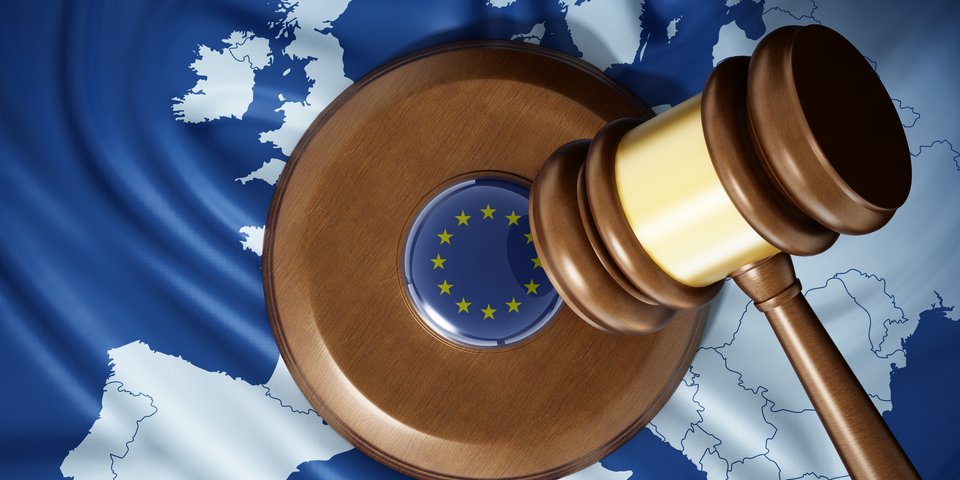 iStockphoto/adventtr
iStockphoto/adventtrFree trade agreements concluded by the EU: What rights do Member States retain?
Under the Treaty of Lisbon, the Member States transferred the competence to conclude free trade agreements to the EU. However, do the national parliaments still have to be involved in the ratification process?
IW – 12/2016
This question is currently being dealt with by the judges of the European Court of Justice in Luxembourg with regard to the free trade agreement between the European Union and Singapore (EUSFTA). In October 2014, the trade partners concluded negotiations over EUSFTA; this was supplemented with rules concerning investment protection in May 2015. The aim of the agreement, as with CETA, TTIP and TiSA, is to improve European economic growth and stimulate labour market growth in the EU Single Market.
Generally speaking, free trade agreements that are negotiated by the EU on behalf of the Member States must be approved by the Council of Ministers and the European Parliament after they have been concluded. The European Commission would also like to take this path towards ratifying EUSFTA.
However, many Member States, including Germany, see this differently. They regard EUSFTA as a mixed agreement because some parts of the treaty contain shared competence between the EU and Member States, and, in certain cases, even fall exclusively within the competence of the Member States. Therefore, the national parliaments should have a say and be involved in the ratification process.
However, the European Commission does not share this view and in spring 2016 it asked the European Court of Justice to make a judgement on the legal nature of EUSFTA. The issue of involving national parliaments in ratifying a free trade agreement concluded by the EU not only affects EUSFTA but also other treaties such as CETA, which the EU concluded with Canada.
EU-Singapore agreement: opinion by the Advocate General
On 21 December 2016, Advocate General Sharpston issued her opinion. She came to the conclusion that the free trade agreement with Singapore can only be concluded jointly by the EU and the Member States. Although some areas of the agreement fall within the exclusive competence of the EU, Brussels does not have exclusive competence over a number of parts of the agreement, such as provisions relating to fundamental labour standards, which fall within the scope of social policy. Therefore, these require explicit approval by the national parliaments of the Member States. Shared competence between the European Union and the Member States is justified, even if it means that ratification of free trade agreements will be more difficult.
The opinion of the Advocate General goes against the European Commission and the European Parliament. The majority of MEPs had, in principle, agreed with the opinion of the Commission.
Landmark precedent
It remains to be seen whether the judges of the European Court of Justice will agree with the opinion of Advocate General Sharpston. A decision is expected in mid-2017.
The pending judgement by the European Court of Justice will set a precedent for the ratification of EU free trade agreements such as CETA, TTIP and TiSA because there are similar issues in play. Although the European Commission presented the free trade and investment protection agreement with Canada (CETA) as a mixed agreement for ratification by the Council of Ministers in summer 2016, it did not explicitly question the legal nature of the agreement. Rather, it continues to believe that CETA falls legally within the exclusive competence of the EU and thus is purely an EU agreement. The Commission chose to take the path of a mixed agreement due to political reasons and hopes that, as a result, the agreement will have better acceptance in the individual Member States.
New generation of free trade agreements
Public interest in negotiations over treaties such as TTIP, CETA and TiSA has grown enormously with the new generation of free trade agreements (WTO plus). The reason for this is that these treaties are very broad and comprehensive in nature and could therefore affect different areas of life to a degree that is still unknown.
The German Social Insurance has been monitoring and accompanying developments and negotiations. Even though social security is not the focus when concluding economic and investment protection agreements, the measures put in place to facilitate trade can also have an effect on social security.
For more, see:
http://dsv-europa.de/en/news/2016/10/ceta-abkommen-unterzeichnet.html
or the position statements on TiSA made by the representatives of the three umbrella associations of the German social insurance system:
